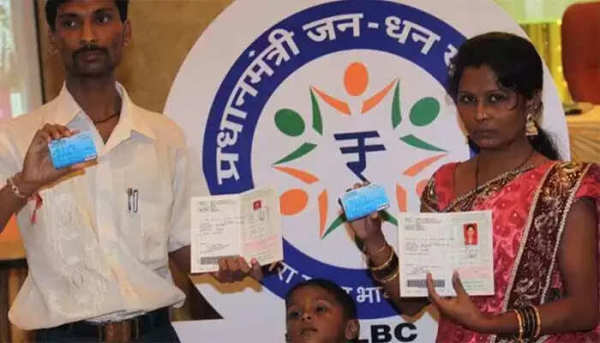
In a major development aimed at enhancing financial inclusion, the Government of India is preparing to introduce new benefits under the Pradhan Mantri Jan Dhan Yojana (PMJDY). Launched in 2014 during Prime Minister Narendra Modi’s first term, this flagship financial scheme has crossed 11 years of successful implementation and continues to be a lifeline for millions.
As per official sources, the Ministry of Finance is working on expanding the scope of facilities available to Jan Dhan account holders, making these basic bank accounts even more user-friendly and empowering.
According to recent reports, the government is planning to roll out three key upgrades for Jan Dhan users:
Cheque Book Facility:
Until now, many Jan Dhan accounts operated with minimal banking services. However, the introduction of cheque books will allow account holders to handle more formal transactions and improve access to financial instruments.
Higher Overdraft Limit:
The existing overdraft facility, which provides limited emergency funds, could soon see an increase in limit. This means more financial support for account holders during urgent cash requirements.
Low-Limit Credit Cards:
In a significant move toward credit access, the government may allow the issuance of small-limit credit cards for Jan Dhan account holders. This could promote responsible borrowing, improve credit history for users, and open doors to broader financial opportunities.
Launched on: August 28, 2014
Accounts Opened: Over 53.13 crore accounts
Active Accounts: Nearly 80% are currently operational
Target Audience: Low-income and underserved populations
Primary Goals: Financial inclusion, zero-balance banking, access to insurance, pension, and credit
Jan Dhan accounts offer zero-balance savings, a RuPay debit card, accident insurance coverage, and access to government subsidies directly into accounts through Direct Benefit Transfer (DBT).
With the new upgrades, the Jan Dhan scheme aims to transition from basic banking to a comprehensive financial ecosystem. Here’s how users stand to benefit:
Cheque books will allow smoother payments for rent, school fees, and other non-digital transactions
Higher overdrafts will help families manage unexpected medical or personal expenses
Credit cards, even with small limits, will introduce millions to formal credit culture, potentially lifting them out of informal debt traps
These changes are particularly significant in rural and semi-urban areas, where Jan Dhan accounts are often the first and only link to formal banking for families.
Here’s a quick look at what Jan Dhan account holders already receive:
No minimum balance requirement
Interest on deposits
Free RuPay debit card
₹2 lakh accidental insurance
₹10,000 overdraft facility (currently)
Access to government welfare schemes and DBT
The Finance Ministry is expected to officially announce the new benefits in the coming weeks, with implementation expected to roll out in phases. Banks may soon begin communicating these changes to eligible account holders.
With over 53 crore accounts and counting, Jan Dhan remains the world’s largest financial inclusion initiative, and these upgrades could be a game-changer for millions of underbanked citizens.